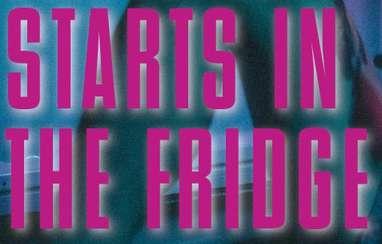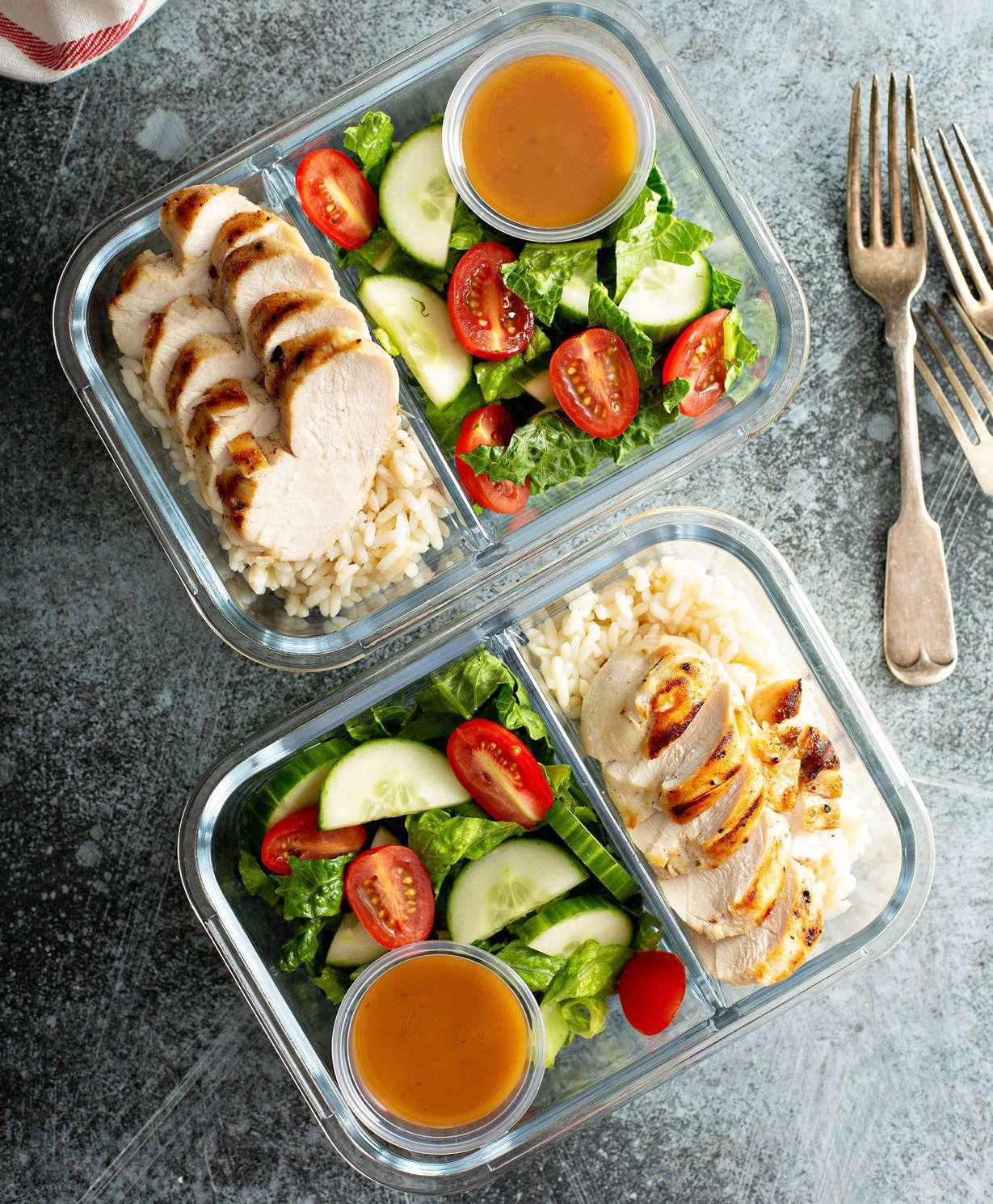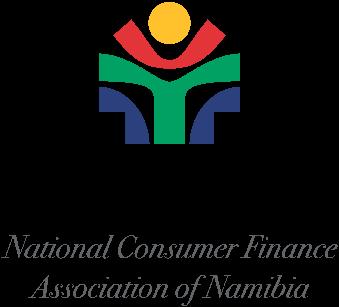


E XCE LL ENCE IS D OIN G ORD IN A R Y THING S
E XT R AO RD I N A RI LY W E L L
– John W. Gardner









E XCE LL ENCE IS D OIN G ORD IN A R Y THING S
E XT R AO RD I N A RI LY W E L L
– John W. Gardner





Open your fridge. Go ahead…i’ll wait.
Now ask yourself: What story does my fridge tell?
• Is it packed with leftovers and half used sauce bottles?
• Is it empty except for a soggy tomato and dried husk of half a lemon?
• Or is it stuffed with ready-to-eat microwave meals and no-name fizzy drinks?
Believe it or not, your fridge says a lot about your finances, especially if you're in debt review. We all know that when your finances are under pressure, the fridge is often the first place that you feel it. It becomes ground zero for convenience spending, emotional snacking, and naughty “oops-I-washungry” purchases. Either that or it's as empty as your bank account. But it’s also where some of the biggest changes can start … right next to the cheese.
When people run out of credit (because they’ve maxed out their cards or are too busy paying back debt) they often find themselves trying to live on less.
But instead of successfully adapting to their changed circumstances, many fall into a sort of survival mode.
The result?
If not an empty fridge, then maybe one full of cheap, processed food. Fewer vegetables certainly. More starch, sugar, and salt probably.
Others who are overworked or have no time, can quickly fall into the habit of relying on fast food or microwave meals. While not necessarily bad, these can quickly drain your wallet (and ironically lower your energy levels).
When days are dark… decent meals are few.

Let’s be honest… stress eating is real.
When you're anxious about your finances, it’s easy to reach for something comforting. That’s why they call it comfort food.
• That chocolate bar.
• A nice salty packet of chips.
• A takeaway meal that you tell yourself you “deserve.”
These little buys (also called micro-spending) don’t always feel like real spending because they can be spread out and in smaller amounts, but they add up fast.
And they’re sneaky: they often happen on the worst days, when you're exhausted and least likely to track them, so the impact on your budget can be hard to understand.
Without a plan, emotional eating and impulsive spending go hand in hand, creating a frustrating cycle of guilt and money trouble.
It can leave you feeling sad and reaching for a feel-good snack.
Most people don’t think twice about their daily food routines
• Buying lunch at work
• Grabbing a few quick things at the shop every day
• Popping into the petrol station shop for a “snack”
These habits feel normal, and for many people they are… but over time, they cost you far more than you realise. One unplanned meal deal a day can eat up your food budget faster than you can say “two pies and a Coke.”
Without thinking, we build routines that don’t fit our actual income, and such poor habits can follow us into debt review unless we take time to actually change them.
This is why the importance of working out a realistic, manageable budget is not to be downplayed.
The good news is that your food shopping and eating habits can also help your finances.
One of the first things that happens when you seek out financial advice, is building a monthly budget. This includes a realistic amount for food. For many people, this is the first time they’ve really sat down and looked at what they should be spending on groceries and meals. It’s eye opening and can leave you with a stocked fridge for the first time in years.
Once you’ve got a realistic, sustainable food budget, it becomes a lot easier to actually plan your shopping. With a fixed financial goal in mind and some practical advice, you can:
• Make a list (and stick to it)
• Start to buy in bulk (when it’s cheaper)
• Cook at home more often (even if you’re not a master chef)
• Learn to avoid daily shopping trips (that tend to lead to naughty impulse buys)
These changes don’t just save money. They also reduce stress and decision fatigue. You’re not constantly standing on the shopping isles wondering, “What should I make for dinner?”, you will already have a plan.
It sounds strange, but when shopping on a budget, most people eat much better.
Why?
Because they’re planning meals, enjoying home cooking, and cutting down on junk food. A better budget allows for healthier basics: fresh fruit, vegetables, grains, and proteins.
You won’t be eating less, you will be eating smarter.
Prices go up. Your salary might go up too… or maybe not.
That means updating your grocery budget every few months, comparing prices, and looking out for specials.
You don’t have to become a coupon queen, but you do need to become more aware of how each item in your trolley links to your long-term goals.
Budgeting at its core, teaches you how to live within your means. And when it comes to food, that lesson is incredibly valuable. Not just for your wallet, but for your health too.
So, back to your fridge.
Is it emptier than the government’s coffers or is it maybe full of random leftovers, naughty sugar-laden snacks, or things you bought and never used? Go have a look.
When your finances are on track you will be able to open the fridge door and see it right away. Budgeting is about shopping with a goal in mind and list in hand. It’s about making adjustments over time and ultimately, it’s about taking back control.
When your fridge is well stocked, with tasty food, then you’ll know that your finances are headed in the right direction.
Instagram is my serious account, the funny one is my bank account ~ Anonymous

Your beautiful budget plans can go right out the window when you fall for these common traps.
Here is a list of 5 of common culprits that sneak into our trolleys and cause overspending:
1. Shopping when hungry
2. Shopping without a list
3. Daily micro-shops (a little here and there)
4. “Specials” you don’t really need
5. Overdoing it on the snacks and drinks
Tip: Make and stick to a shopping list, and never shop on an empty stomach.
Here are some affordable, versatile items to keep in the cupboard or freezer:
• Rice and pastas
• Samp, beans or lentils
• Frozen mixed veg
• Tinned tomatoes and sweetcorn
• Eggs
These basics can become soups, stews, pastas, and more. All for less than a takeaway burger delivered by Mr D.

Ever feel that you want a little nibble when you’re stressed out?
Well, it is a fact that stress triggers cravings for sugar, fat, and salt. That’s why we sometimes talk about comfort food. It literally tricks our brains and makes us happy (for a bit).
But the short-term comfort we get from having that snack or big meal can quickly come back to bite us when we look at our groceries and snack bill at the end of the month.
Try this instead:
• Drink some water,
• Go for a walk,
• Try journaling to help you understand your stress, or
• Phone a friend for a good yak instead of reaching for a snack.
Admit it! We all eat stuff that we know we shouldn’t.
While those things might not be bad once in a while, and in moderation, we can all make small changes that are actually good for us.
Try This:
• Swap potato chips for popcorn (but don’t over do it on the salt),
• Swap those expensive fizzy drinks for lemon water,
• Swap out white bread for sourdough,
• Swap pies for egg & toast (or Avo toast if you have the budget).
If you review your normal eating habits, you will probably find that you can make a few small exchanges here.
Those small changes can actually have big impact on both your budget and your health.





Parliament has passed legislation allowing GIPF members to draw up to 30% of their pension savings to finance home purchase or construction. This has been done with the aim of unlocking affordable housing options.
The interest rate will be capped at repo+2.5%, currently around 9.25%, significantly below mainstream mortgage rates of 11.5% to 12.5%.
The scheme also extends to loans on village or un-proclaimed land, areas typically excluded by commercial banks. GIPF is leading the rollout, and it remains to be seen whether other pension funds will follow.
But critics note serious limitations: access remains narrow, since civil servants with high unsecured debt loads or insufficient pension balances struggle with affordability. For instance, a two‑bedroom dwelling priced at ≈N$600,000 would require roughly N$1.8 million saved in pension and affordability for monthly repayments of around N$5,500, assuming 20 years to retirement. In practice, only long tenured, debt free mid‑career civil servants appear to be realistic beneficiaries.
The product brings many potential market benefits including driving increased competition that might help drive down mainstream home loan rates.

In her maiden State of the Nation Address (April 2025), President Netumbo Nandi Ndaitwah announced that all tuition and registration fees at public universities and government-run vocational colleges will be fully subsidised starting in the 2026 academic year.
However, the announcement also made clear that accommodation, meals, transport, stationery and hostel fees will remain the responsibility of families and students. Some critics have called politically symbolic unless accompanied by infrastructure investment and comprehensive implementation plans (which will hopefully soon be published as well).
This massive announcement builds upon Namibia’s existing policy of free primary and secondary education, and are aimed at eliminating financial barriers to higher learning for the country's youth.

A suite of tax relief measures, that were signed into law via the Income Tax Amendment Act in 2024, recently came into effect.
Most notably, the personal income tax threshold was doubled from N$50,000 to N$100,000, exempting the first N$100,000 of annual income from tax. Government estimates value this relief at approximatelyN$646 million, equivalent to N$12,000 per taxpayer per year on average.
Refunds for PAYE over-deductions between March and August 2024 began in October 2024, either through employer reimbursement (or direct refund from NamRA if employers lacked sufficient liability). The measures have been a significant boost for many civil servants, with anecdotal reports suggesting an average N$1,000 increase in monthly take-home pay.



In an important step towards balancing the needs and rights of Namibians with the needs and somewhat overwhelming resources of credit providers, a new consumer education and rights’ association has been born.
The association is called NCFA.